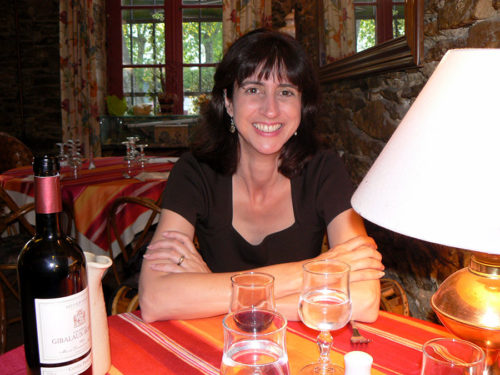Measure for Measure holds clues to Shakespeare’s awareness of how church marriage laws affected Jacobean audiences . . Cassidy Cash, host of the podcast, That Shakespeare Life, recently interviewed Cynthia Greenwood about her close study of Measure for Measure, and her research into the way in which Shakespeare’s audiences of 1604 found themselves in the crosshairs of the church courts if they entered into an informal marriage, a practice that had been considered legal for centuries under English common law. In this episode Cynthia explores a revision to canon law in 1604 and how the plot of Measure for Measure suggests Shakespeare’s own awareness of how the law affected ordinary Jacobean citizens. As quoted on ‘That Shakespeare Life’ (Episode 276) at CassidyCash.com: If you… Read More…
Posts with the category ‘Commentary – Shakespeare’s plays’
Dig into 1604 canon law and the bawdy courts of Shakespeare’s time
Susanna and Will: A Reckoning Among the Dead in Stratford-upon-Avon
In today’s post, I’m re-publishing a review released in 2008 on BlogCritics, which explores Diana Howie’s elegant play, Susanna and Will. Will the real William Shakespeare ever come forward? Not much chance of that, if only in our imaginations. The mystery of Shakespeare’s life and career persists. How do we reconcile our image of the absentee husband and father from Stratford-upon-Avon with the prodigious output of the London-based poet and player? Susanna and Will is an elegant work by playwright Diana Howie, produced in past years by Houston’s Country Playhouse Black Box Productions (now the Queensbury Theatre), as well as Houston’s Main Street Theater. The play imagines the reunion of Susanna Shakespeare and her father, offering satisfying answers to questions that… Read More…
The Rose Theatre at Blenheim Palace Closes Richard III Under a Chilly Drizzle
Today only the watery foundations of the Elizabethan Rose theatre’s 14-sided timber structure are still standing on London’s Bankside (south of the Thames River), located about 100 meters from the new Globe theatre. The Rose Playhouse, built in 1587, housed the acting troupe known as the Admiral’s Men and their legendary Christopher Marlowe interpreter, Edward Alleyn. Recently the producers of Shakespeare’s Rose Theatre decided to allow playgoers to experience the intimacy of a Shakespeare play within the Rose playhouse. So they created a four-play repertory that could be performed inside two temporary structures that bear a striking resemblance to the Rose’s thatched roof and timber structure. These two Rose theatre facsimiles are notable for being open to the sun and… Read More…
Riedel’s Merchant is Scintillating, Despite Our Aversion to Shylock’s Undoing
The Merchant of Venice is part of Shakespeare’s “controversial canon” of plays for today’s theatre-goer. Directors persistently wrestle with audience concerns about the playwright’s bias against the drama’s notorious money lender who is robbed of his religion during the final act. Because Shakespeare most likely styled his play after Christopher Marlowe’s The Jew of Malta (1589), he conceived of Shylock as an allegorical figure from medieval drama—a stereotypical bad guy that Elizabethan audiences had grown to expect in the 1590s, when Merchant was first performed. A lesser playwright would have imagined Shylock as a one-dimensional villain. Shakespeare, though, created a well-rounded anti-hero who roundly exposes Christian hypocrisy, and challenges the ignorant prejudices about Jews that were displayed by his countrymen…. Read More…
In Henry V, Texas Shakespeare Festival Actors Esteem the Verse, Above All
As a lifelong theatre buff who has seen Shakespeare’s plays performed in London’s West End, in New York on Broadway, at the Stratford Festival of Canada in Stratford, Ontario, and at Houston’s Alley Theatre, I am consistently impressed by the Texas Shakespeare Festival’s commitment to staging productions of such impeccable quality, they routinely outshine shows mounted by regional theaters and Shakespeare festivals in large Texas cities that attract much higher audiences than TSF. (The Texas Shakespeare Festival, affiliated with Kilgore College, is located in a small town about 30 miles east of Tyler, Texas.) According to TSF’s longtime artistic director, Raymond Caldwell, the festival is committed to ensuring that audiences understand every word that its actors utter onstage. (This is a commitment… Read More…




